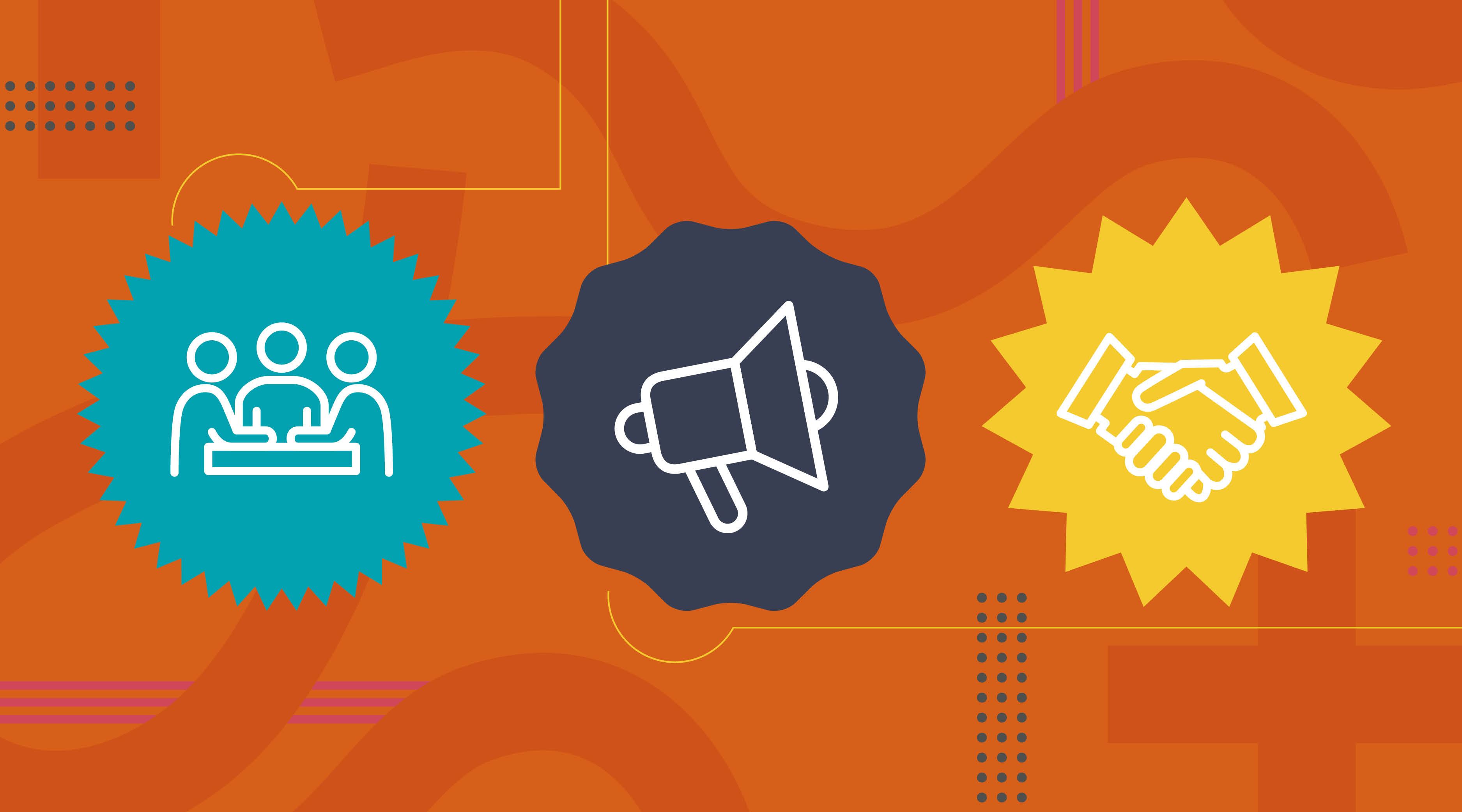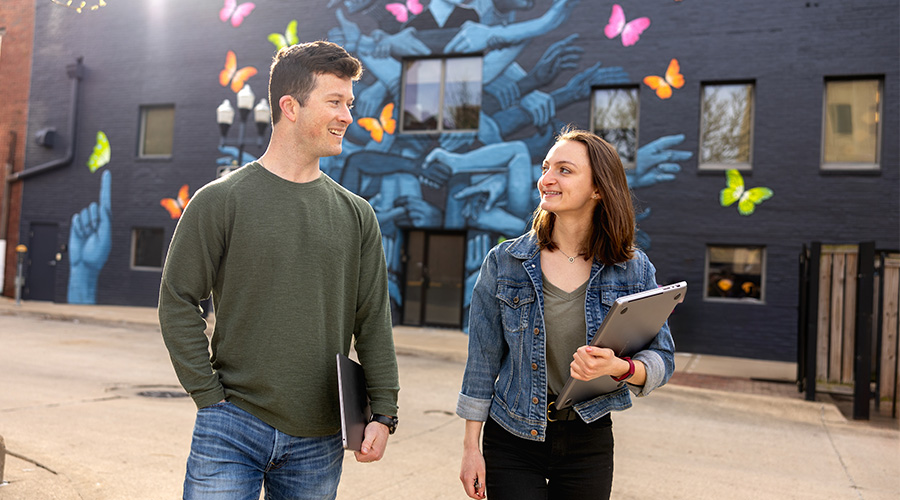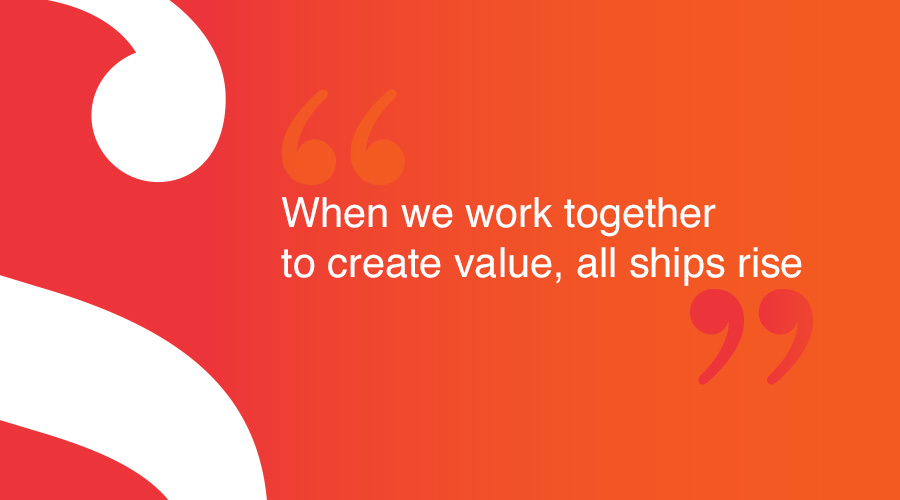When it comes to developing nimble workplace practices and establishing an affirming office culture, honoring and centering diversity is key. Diversity is the variation across a group of people that you can see (think race, gender and age) as well as things you can’t see (such as religion, veteran status, neurodiversity or formative life experiences). Our individual ideas, interests and passions create a beautiful and unique world — and the workplace is an ideal scenario where these differences can engage, support and inspire curiosity. Championing diversity within an organization leads to better outcomes and success for both individuals and teams.
In a YouTube video entitled “What Diversity & Inclusion is REALLY About,” bestselling author and inspirational speaker Simon Sinek explains how diversity of thought makes companies successful when united under shared values and vision. Though we all have blinders, being open to new perspectives challenges and motivates us to be better, Sinek explains. Besides driving innovation and (ultimately) greater profitability, diversity also helps to build soft skills.
Soft skills, also known as interpersonal skills, go a long way toward making someone an effective coworker. Employees with soft skills demonstrate empathy, trust and other foundational values that create meaningful relationships with coworkers and clients alike. Let’s take a look at five critical soft skills and how they are enhanced by diversity.
Adaptability
If the pandemic has taught us anything, it’s that adaptability is always key. The best laid plans never work out exactly how you anticipate, so in today’s ever-changing world, adaptability is a critical prerequisite. Sitting in uncertainty is often uncomfortable. But for those familiar with going against the grain and finding new ways of doing things, that flexibility feels much more natural.
Whether making executive decisions to accommodate a last-minute change of plans or building new approaches to old problems, bringing diverse perspectives to the table lays a strong foundation for adaptability. And for those who have sat with the discomfort that compels adaptability, creativity follows.
Creativity
Diversity helps enable creativity, allowing us to see unexpected connections and uncover critical gaps. Creativity is inherently related to our discomfort and ability to change the status quo. “Diverse groups are more creative,” notes organizational psychologist and writer Adam Grant. “They feel uncomfortable, and that discomfort motivates them to do extra preparation and share new information.” Creativity is fueled by variation of thought, dialogue and different ways of seeing the world — and amplified when a diverse group of people come together.
Expressing creativity can also be risky, as new ideas may be met with resistance. That’s why sustaining a listening culture, responsive to different points of view, helps organizations remain creative and avoid stagnancy. Encouraging any two people to collaborate — for instance, one with a non-Western cultural influence and another with a distinct generational perspective — expands the possibilities for imagining together. Greater creativity is also linked to the sort of emotional self-awareness that allows artists and other innovators to ride the ups and downs of the creative process.
Emotional Intelligence
Emotional intelligence is often de-emphasized over other forms of intelligence, but it’s key to building healthy workplace relationships. Emotional intelligence means that someone can understand and manage their emotions, especially in a fast-paced and potentially high-stakes context such as the workplace. Colleagues who are emotionally intelligent are better equipped to extend empathy to their coworkers, bring self-awareness to their interactions and apply a learning mindset to tackling new challenges.
For those who are used to working with others from different backgrounds, emotional intelligence is a well-honed skill. It requires clarity and patience, knowing the audience, and asking for feedback. When team members demonstrate high emotional intelligence, they create meaningful relationships that make collaboration easier.
Teamwork
Think of the best coworker you’ve ever had. They likely demonstrate some of the traits mentioned above: adaptability, emotional intelligence … perhaps even a well-timed wit. Another trait common to great coworkers is their willingness to support you to be the best colleague you can be. That’s because teamwork is impossible without trust and comradery. To form strong relationships, everyone must be free to express themselves in a space that is safe and supportive. When team members work well together, they’re better prepared to solve any problem that comes their way (and have more fun in the process!).
Developing a culture that accepts and welcomes its employees makes everyone feel like they belong. According to the Harvard Business Review, high workplace belonging helps increase job performance by 56% and cut turnover in half. By embracing diversity among your team members, they will be better suited to tackling new problems.
Related: Not Everyone Can Build a Helicopter That Flies on Mars
Problem Solving
Have you ever been stuck in a meeting where everyone’s on the same page — where there’s lots of nodding but very little progress? Diversity of thought helps us move past the doldrums of polite agreement and develop a successful plan of action. Take it from Google CEO Sundar Pichai: “A diverse mix of voices leads to better discussions, decisions and outcomes for everyone.”
When we hold space for diverse perspectives, better decisions can be made with expanded possibilities. Renowned author Chimamanda Ngozi Adichie speaks of how a single misperception about another person or group can cause misunderstanding. Seeing the gray areas around problems that once may have seemed black-and-white makes new solutions possible.
Embracing Diversity
Here at Simantel, we’re doing our best to foster diversity, equity and inclusion (DEI) in our culture beyond Black History Month through our DEI committee, community involvement and Diverse Minds Scholarship program. Not only do these initiatives improve our communities, they improve the work we do within the walls of 321 SW Water Street. By embracing diversity company-wide, our soft skills can flourish — and we can do the high-impact, collaborative work for which Simantel is known.
Though their impact is difficult to quantify, these intertwining soft skills can serve as guiding principles in life as well as the workplace. Embracing diversity is one way to hone these fundamental skills. We can all contribute to workplace culture by advocating for diversity. Ask yourself: How can you make your office a place where diverse perspectives are respected this year?





